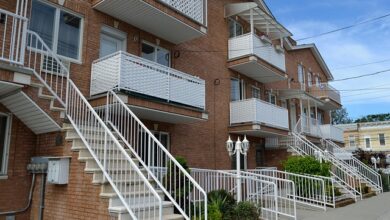How to File a Homeowners Insurance Claim Successfully in Luxembourg

Filing a homeowners insurance claim in Luxembourg can be a straightforward process if you know the steps to take and the documentation required. Whether you’re dealing with storm damage, theft, water leaks, or other incidents, understanding how to navigate the claims process is essential to ensure you receive fair compensation. In this guide, we’ll walk you through the steps to file a successful homeowners insurance claim in Luxembourg.
1. Understand Your Homeowners Insurance Policy
Before filing a claim, it’s crucial to review your policy to understand what is covered and any exclusions that may apply. Luxembourg’s homeowners insurance policies typically fall into two categories:
- Basic Coverage (RC Habitation) : Covers third-party liability for damages caused by your property (e.g., a falling tree damaging a neighbor’s car).
- Comprehensive Coverage : Includes protection for your home and belongings against risks like fire, theft, vandalism, natural disasters, and water damage.
Key points to check:
- Coverage Limits : Know the maximum amount your insurer will pay for specific types of claims.
- Exclusions : Some perils, such as floods or earthquakes, may require additional coverage.
- Deductibles : Understand how much you’ll need to pay out-of-pocket before your insurer covers the rest.
2. Notify Your Insurer Promptly
In Luxembourg, insurers often require claims to be reported within a specific timeframe—usually within 5 to 30 days of the incident, depending on the policy. Delaying notification could result in a denied claim.
- Contact Your Insurer : Call your insurance company or agent as soon as possible to report the incident. Provide a brief explanation of what happened.
- Request a Claim Form : Ask for the necessary paperwork and instructions for submitting your claim. Many insurers now allow online submissions for faster processing.
- Keep Records of Communication : Note the date, time, and name of the representative you speak with during your call.
3. Document the Damage Thoroughly
Proper documentation is critical to substantiate your claim and ensure you receive fair compensation.
- Take Photos and Videos : Capture detailed images of all damaged areas, both inside and outside your home. Include close-ups and wide shots to provide context.
- Create an Inventory of Damaged Items : For personal property claims, list all lost or damaged belongings. Include descriptions, estimated values, and receipts if available.
- Preserve Evidence : Avoid making permanent repairs until an adjuster has inspected the damage. However, take reasonable steps to prevent further damage (e.g., covering broken windows or stopping leaks).
4. Mitigate Further Damage
Luxembourg’s insurance policies generally require policyholders to take reasonable measures to prevent additional damage after an incident. This is known as the duty to mitigate losses .
- Temporary Repairs : Fix urgent issues like broken windows, leaking roofs, or water damage to prevent worsening conditions.
- Save Receipts : Keep all receipts for temporary repairs, emergency services, or relocation costs, as these expenses may be reimbursable under your policy.
5. Meet with the Claims Adjuster
An insurance adjuster will typically visit your property to assess the extent of the damage and estimate repair costs. Preparing for this meeting can strengthen your claim.
- Be Present During the Inspection : Accompany the adjuster to ensure they see everything and to answer any questions.
- Provide Supplemental Evidence : Share your photos, videos, inventory lists, and any other relevant materials.
- Get Multiple Repair Estimates : Obtain quotes from licensed contractors to compare with the adjuster’s assessment. This can help negotiate a fair settlement if the initial offer seems insufficient.
6. Submit Required Documentation
After the inspection, your insurer may request additional information to finalize your claim. Stay organized and responsive throughout this stage.
- Complete Forms Accurately : Fill out all paperwork carefully to avoid delays.
- Attach Supporting Documents : Include photos, receipts, contractor estimates, and any other relevant materials.
- Double-Check Deadlines : Ensure you submit everything within the specified timeframe to avoid complications.
7. Review the Settlement Offer
Once your insurer processes your claim, they’ll issue a settlement offer outlining the amount they’re willing to pay. Carefully review this offer to ensure it’s fair and aligns with your expectations.
- Compare Estimates : If the payout seems insufficient, compare it to the repair quotes you gathered earlier.
- Negotiate if Necessary : Politely discuss discrepancies with your insurer. You can also involve your agent or seek legal advice if needed.
- Accept or Appeal : If satisfied, sign the settlement agreement. If not, file an appeal or dispute the decision.
8. Special Considerations for Natural Disasters
Luxembourg experiences occasional natural disasters, such as storms, floods, or heavy snowfall. Here’s what to keep in mind:
- Natural Disaster Coverage : Basic policies may not cover certain perils like floods or landslides. Check if you have additional coverage or need to file a claim with the Caisse Nationale de Santé (CNS) for state assistance in case of major disasters.
- Government Aid : In cases of widespread damage, the Luxembourg government may provide financial aid to affected homeowners.
9. Tips for a Successful Claim
Here are some additional tips to maximize your chances of a smooth and successful claims experience:
- Act Quickly : The sooner you report the incident and submit your claim, the better.
- Be Honest and Transparent : Misrepresenting facts or exaggerating damages can lead to denied claims or legal consequences.
- Know Your Rights : Familiarize yourself with Luxembourg’s consumer protection laws and your insurer’s obligations under your policy.
- Stay Organized : Keep copies of all correspondence, receipts, and documents related to your claim.
10. Common Mistakes to Avoid
To ensure your claim isn’t delayed or denied, avoid these common pitfalls:
- Failing to Report Promptly : Late submissions can raise suspicions or violate policy terms.
- Throwing Away Damaged Items : Keep them until the adjuster inspects them, unless they pose a health hazard.
- Accepting the First Offer Too Quickly : Always review and verify the settlement amount before agreeing.
- Not Reading the Fine Print : Misunderstanding your policy can lead to unpleasant surprises later.



